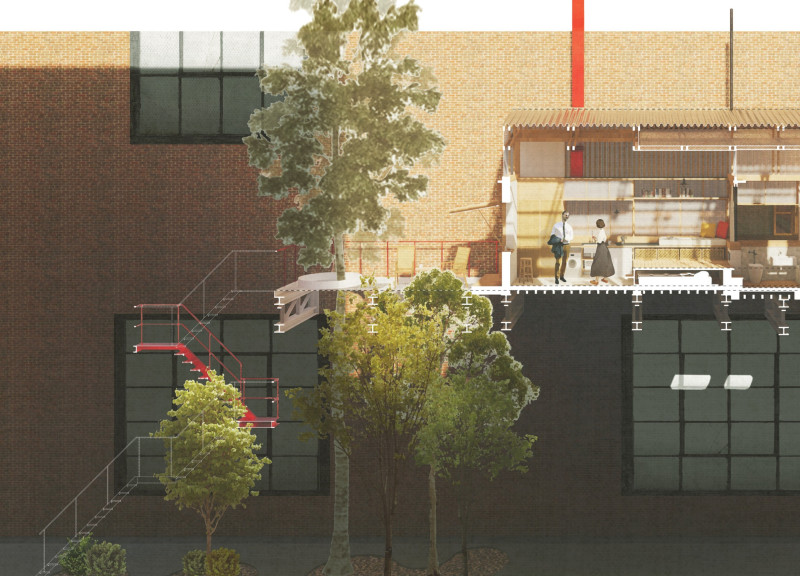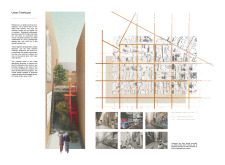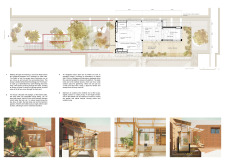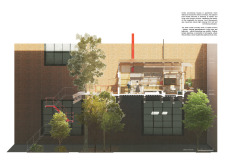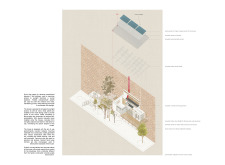5 key facts about this project
The primary function of the Urban Treehouse is to offer affordable housing for young professionals, emphasizing sustainability and community. By elevating living spaces, the design ensures optimal ventilation and natural light, creating an inviting atmosphere. This typology leverages existing urban infrastructure to foster a dynamic living experience without encroaching on ground-level functionality.
Sustainability is a fundamental aspect of this architecture. The project employs recycled materials such as timber for structural elements, metal roof panels, polycarbonate for light diffusion, and recycled concrete plywood for durability. These choices reflect a commitment to minimizing environmental impact while maintaining aesthetic appeal. The incorporation of rainwater tanks further supports water conservation goals.
The Urban Treehouse distinguishes itself from other residential projects through its innovative use of space and integration of nature. Perforated courtyards allow for greenery and urban gardening, which contribute to occupant well-being and promote environmental engagement. Large operable windows and outdoor terraces reinforce the connection between indoor and outdoor spaces, facilitating a seamless flow of light and air.
This project also prioritizes community interaction by revitalizing neglected laneways and transforming them into vibrant living environments. The elevation of residential units encourages a dialogue with the surrounding urban fabric, thus enhancing social connectivity.
The design’s attention to functional details is evident in the layout, which includes flexible spaces such as foldable study desks and extensive storage options. Each unit is carefully organized to optimize utility while providing privacy, a necessity for urban living.
For more in-depth insights into the Urban Treehouse project, including architectural plans, sections, designs, and ideas, the architectural presentation offers a comprehensive overview of this innovative residential solution. Explore these elements for a better understanding of how this project addresses contemporary urban living challenges.


